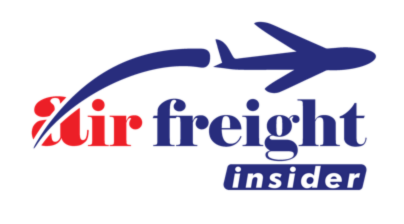Daily Briefing – September 12, 2025
Welcome to your daily update from airfreightinsider.com, where we bring you the most relevant developments shaping the air cargo and logistics industry. Today’s briefing covers key labor developments at Lufthansa, strategic shifts in airline alliances, innovations in airport operations, and expanding global partnerships.
Lufthansa Pilot Strike Vote and Group Restructuring
The pilots of Lufthansa and its cargo subsidiary Lufthansa Cargo have started a strike authorization vote, running until September 30, amid an escalating tariff dispute on company pensions after seven unsuccessful negotiation rounds. This potential labor disruption comes at a delicate moment as Lufthansa moves to deepen integration across its group airlines. The company announced plans to consolidate network management for Lufthansa, Swiss, Austrian Airlines, and Brussels Airlines to strengthen their competitive position, with implementation expected early next year. Additionally, Lufthansa aims to increase its stake in Italy’s ITA Airways potentially to a majority share by next year, highlighting a clear strategy to expand its footprint in the European market.
The Lufthansa Group’s broader transformation project envisions transitioning from a collection of individual airlines toward a more unified group structure, aiming for operational synergies and a strengthened market presence. Furthermore, Lufthansa’s fleet strategy includes expanded deployment of Boeing 787-9 aircraft on multiple Frankfurt and Munich routes for the upcoming winter season.
Global Partnerships and Cargo Innovations
In the e-commerce sphere, Qatar Airways Cargo has announced an expansion of its strategic partnership with Cainiao to accelerate global cross-border deliveries, underlining the growing importance of e-commerce logistics in air cargo. Meanwhile, Malaysia’s low-cost carrier Air Asia is in active talks with Chinese manufacturer Comac regarding its C919 medium-haul jet, signaling an interest in diversifying fleet options beyond traditional Western manufacturers.
On the sustainability front, Petronas has delivered Malaysia’s first domestically blended sustainable aviation fuel (SAF) to Malaysia Airlines, marking an important step towards greener operations in the Southeast Asian region.
Airport and Ground Operations – Technology and Electrification
At the airport level, several noteworthy developments highlight ongoing efforts in digitization and sustainability. The Paderborn/Lippstadt Airport has launched a six-month test phase for its “AEM Speedport” project, which aims to autonomously tow aircraft between parking stands and runways without engine power, an innovation that could save fuel and reduce emissions.
Meanwhile, at Frankfurt Airport, Fraport continues to invest in electrifying its ground equipment. The company secured €213,000 in funding from the state of Hesse to acquire two fully electric aircraft tugs capable of handling large jets. These vehicles are scheduled for deployment by the end of 2026, representing a significant step in reducing airport carbon footprints.
Other Industry Highlights
- Deutsche Bahn: The rail operator has officially denied recent media reports suggesting major cuts to its long-distance passenger network, reassuring stakeholders of stable service levels.
- Condor: The leisure carrier will retire its last Boeing 757 this November after 35 years, replacing the type with an all-Airbus fleet. A farewell flight from Frankfurt to Vienna is planned for November 5.
- JetBlue: The US low-cost carrier is accelerating its transatlantic expansion, focusing on leveraging its hubs in New York and Boston to bring more passengers to Europe, supported by a specialized fleet strategy for these routes.
- Schiphol Airport: Enhancing passenger retail, the Dutch airport welcomed popular lifestyle and jewelry brand My Jewellery with a new boutique in Lounge 1, reflecting ongoing efforts to diversify and enrich the travel experience.
- Security Alert: Following unauthorized incursions of Russian drones into Polish airspace on September 9, NATO consultations were triggered. Legal assessments emphasize that airlines and aviation stakeholders should closely monitor evolving airspace security and regulatory implications.
Summary
The industry is navigating a mix of labor challenges, strategic consolidation, technological innovation, and sustainability initiatives. Lufthansa’s ongoing strike vote coupled with its ambitious group restructuring reflects wider attempts by legacy carriers to improve resilience and competitiveness. At the same time, collaborations across cargo networks, new aircraft talks, and sustainable fuel deliveries underline how air transport is adapting to evolving customer demands and environmental pressures. Airports continue to lead in implementing greener and smarter operational concepts, while geopolitical tensions underline the critical importance of security vigilance in the airspace.
Stay tuned for tomorrow’s briefing and our latest YouTube video for deeper insights into these trends.
